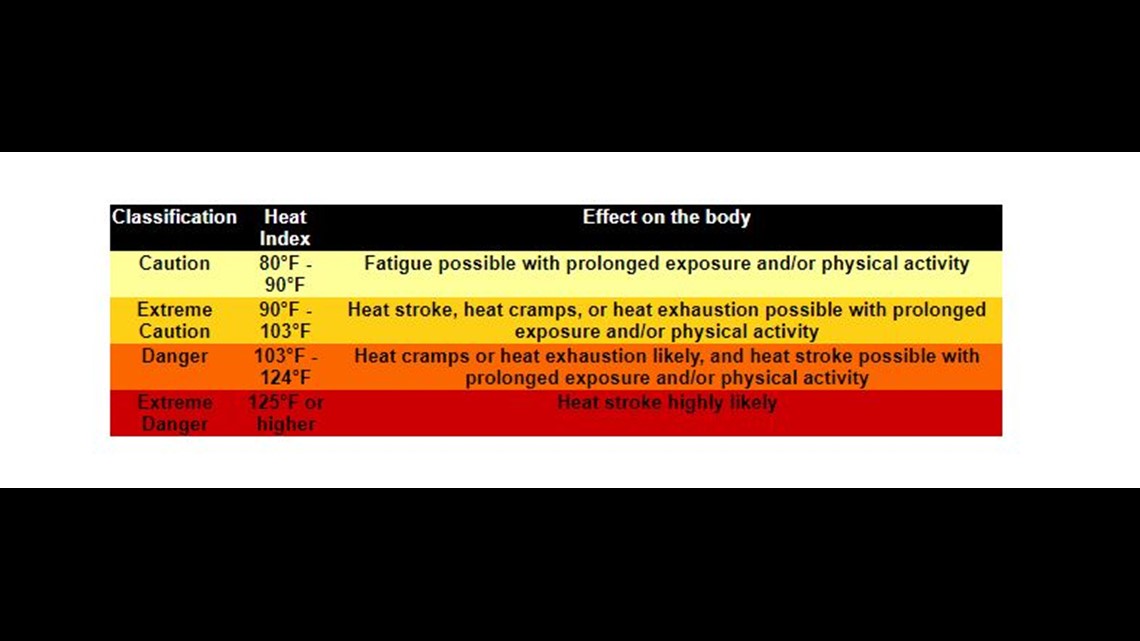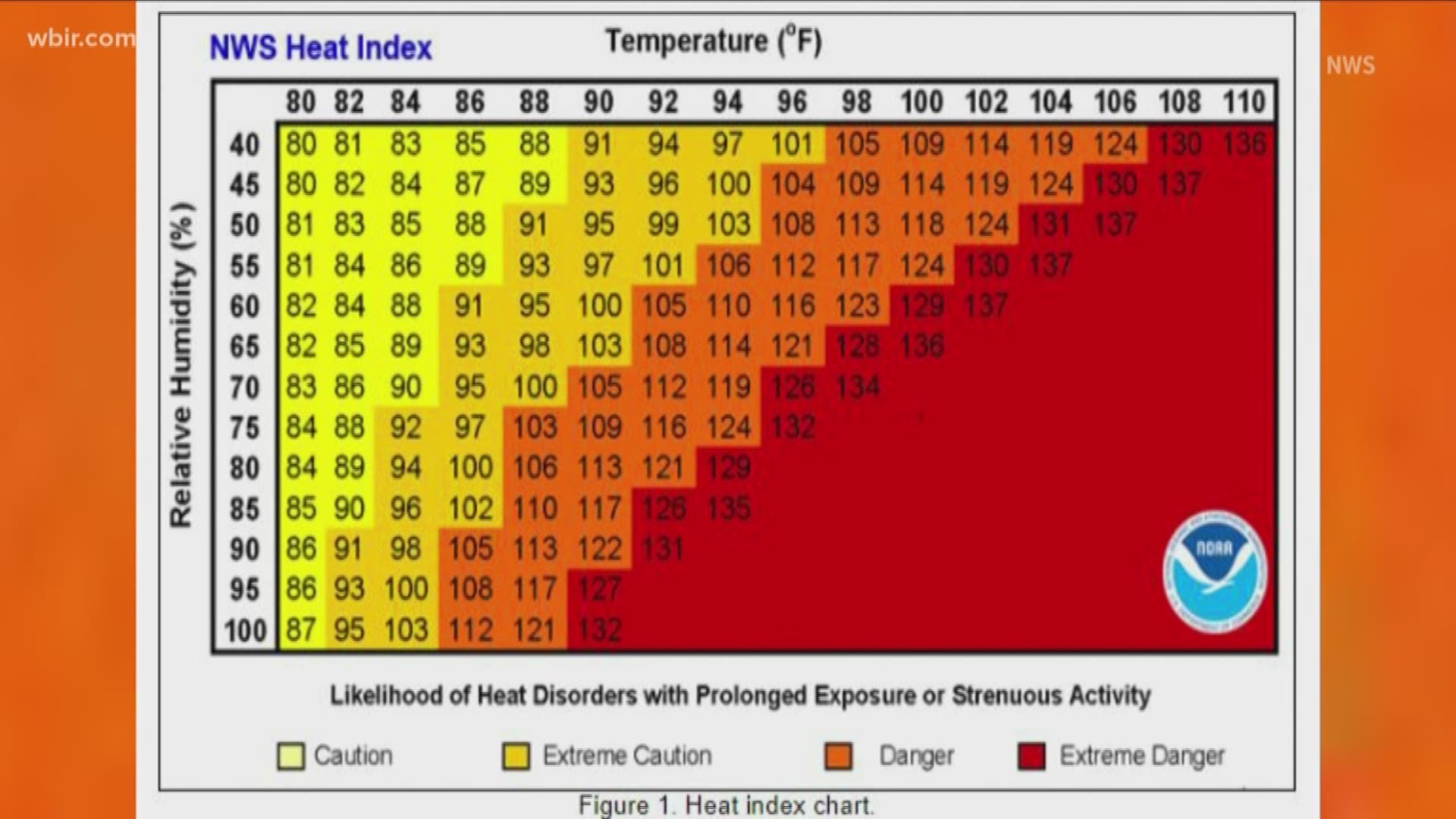The summer season officially starts June 21, but East Tennessee is already seeing many summer-like temperatures across much of the area.
It's good to know -- especially for those who love to get outside -- how to stay safe while outside with temperatures reaching the 90s. One thing to note is that even if it's 90°F, the heat index, or feels-like temperature, may be a bit hotter depending on the dew point.
According to the Centers for Disease Control and Prevention, more than 600 people in the United States die from extreme heat each year. Most heat-related deaths and illnesses are also preventable.
OUTDOOR AND INDOOR HEAT SAFETY
If you're outside, staying hydrated is one of the most important things you can do. Water helps the body maintain its internal temperature, so you can avoid heat exhaustion or a heat stroke. If possible, finds intervals during the day to take a break in the shade. Temperatures can, at times, feel 10°F cooler.
The National Weather Service has a guide on how different heat indexes can affect the human body. If temperatures are between 80°F and 90°F, you should use caution while outside.
If temperatures are between 90°F and 103°F, people should use extreme caution while outside and should be wary of heat exhaustion.


If you're going to be outside, the NWS suggests planning outdoor times in the early morning or the late evening.
Not only should you be wary in the heat while outside, but check on your neighbors when temperatures rise above 90°F, especially the elderly.
CARS AND HEAT
As of June 2018, the National Weather Service says there have been 12 children who have died from heatstroke in cars across the U.S.
Leaving your child or anyone else in a vehicle in the heat is dangerous. In about 10 minutes, the interior of a car can heat up by 20°F in the sun. Even on a day where temperatures are in the 70s, a car's internal temperature can rise up to 150°F.
Cars can also quickly heat up even with windows cracked.
A good tip to make sure you never accidentally leave anyone behind in a hot vehicle is to "look before you lock," one of the many reminders to check and make sure all living things are out of the car on a hot day before you lock the doors.
PETS AND HEAT
According to the U.S. Climate Resilience Toolkit from the National Oceanic and Atmospheric Administration, pet owners should take special care of their animals in the heat. Some animals can become hotter than others based on size. Smaller animals heat up faster than larger animals. Therefore, they can be more vulnerable to heat illnesses.
Experts suggest not walking dogs on hot pavement as their paws can burn on hot surfaces. If you dog appears uncomfortable or not walking normally, maybe move to the grass where it's a lot cooler than man-made surfaces like concrete.
Also limit the amount of time your pet spends outside while in temperatures above 90°F. Have water as well so they can stay hydrated just as you do while in the hot temperatures.
The National Weather Service also has plenty of heat safety resources and information on how to stay cool this summer. Practice heat safety, stay hydrated and limit outdoor activities if possible this summer.

